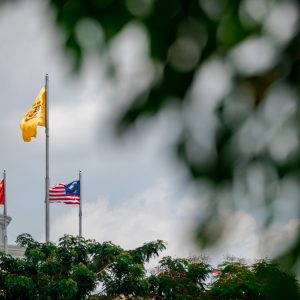Feet in two boats: Story of Indian diplomacy in Israeli-Palestinian conflict
-Indian diplomacy in recent times has been characterized by its claims to leading the Global South, but aligning with the colonial West on key global issues
By Iftikhar Gilani
After successfully hosting the G-20 summit, India was in the spotlight as the new leader of the Global South. A month later after achieving this coveted position, it was expected to take a lead role in ending the Israeli-Palestinian conflict or at least take a bold stance against death and destruction that is challenging world peace like never before.
At the G-20 summit last month, Prime Minister Narendra Modi announced India’s commitment to the interests of the developing world. But India’s unexpected stance on the Israeli-Palestinian conflict, in which it allied itself with colonial powers by unequivocally supporting Israel, has provoked skepticism. It has called into question the credibility of its argument to claim leadership of the Global South.
India’s absolute condemnation of terrorism is understandable, but its abstention from even calling for an end to the conflict or emphasizing restraint to protect civilian lives is a major departure from its historical position during previous escalations in the region.
India’s expression of “solidarity with Israel” was officially posted on social media by Modi, which he reiterated during a subsequent conversation with Netanyahu. The message underscored India’s sympathy for the victims and reaffirmed support for Israel during these difficult times.
In this endeavor, India found itself isolated even within the BRICS group (Brazil, Russia, India, China, and South Africa). Two members of the grouping China and Russia, asserted their leadership roles, called for restraint and diplomatic conflict resolution. South African President Cyril Ramaphosa went a step further by offering to contribute to peace efforts between Israel and Palestine, urging global support for a sustainable solution leading to a coexisting Palestinian and Israeli state based on the 1967 borders with East Jerusalem as the Palestinian capital. He appealed for immediate access for humanitarian aid, noting the tragedy being inflicted on civilians by the escalation of the conflict.
The unfolding crisis highlighted India’s evolving geopolitical orientation, which shows its strategic tilt toward Western capitals and contrasts with its purported role as a champion of the Global South.
Experts interpret this shift as India distancing itself from Global South priorities and instead turning to Western alliances. This observation is supported by India’s response, which parallels that of the G7 countries in condemning Hamas while recognizing Israel’s right to self-defense.
Rajesh Rajagopalan, professor of international politics, and Harsh V. Pant, foreign policy expert, attribute this to India’s focus on counterterrorism, technological ties with Israel, and strategic partnerships such as the I2U2 (India, Israel, the United Arab Emirates, and the United States) and the prospective India-Middle East-Europe Economic Corridor (IMEEC).
According to experts, India’s aspiration to launch the IMEEC soon depends on peace and peaceful resolution of issues in the Middle East. India had been eyeing the Abraham Agreement, which aimed to normalize Arab relations with Israel for the operationalization of this corridor. But now that the Abraham Agreement is all but dead and normalization is but a dream after the Israeli bombardment of Gaza, India’s role in bringing peace and ending the conflict should have been a priority.
At the G-20, Indonesia, Türkiye, and Saudi Arabia expressed strong opposition to Israeli actions. They expressed concern about the escalation of the conflict and stressed that the root cause – Israel’s occupation of Palestinian territories – must be addressed in accordance with U.N. agreements. Even Vietnam and Singapore called for an immediate end to the violence and emphasized the protection of civilians and security.
Sarang Shidore, director of the Global South Program at the Quincy Institute, argues that India’s support for Israel underpins its stance against global terrorism. While it would be an exaggeration to expect India to adopt a posture that it did during the Cold War era, the fixation on a terrorism-only approach and the sidelining of root causes has diminished the country’s diplomatic standing.
Former Indian diplomat M.K. Bhadrakumar notes that Israel’s increasing offensive and loss of civilian lives puts countries like India that have shown solidarity with Israel in a difficult position and puts their credibility in the Global South at stake.
He said the developing Arab-Iranian-Chinese axis is ready to bring the Gaza situation to the forefront of U.N. Security Council discussions and call for Israel’s withdrawal.
“A week after the West Asian crisis began, the silence of Indian Foreign Minister S. Jaishankar is conspicuous and does not do justice to India’s self-proclaimed role as ‘Vishwaguru’ (world leader),” he said.









